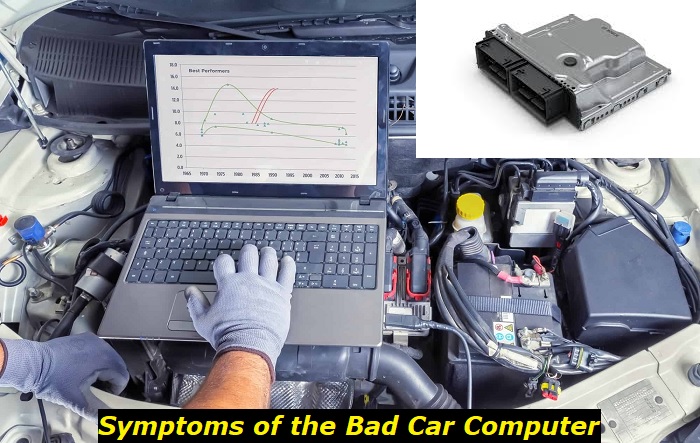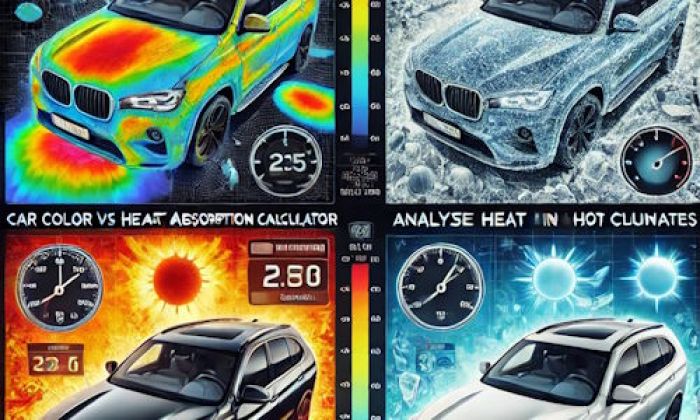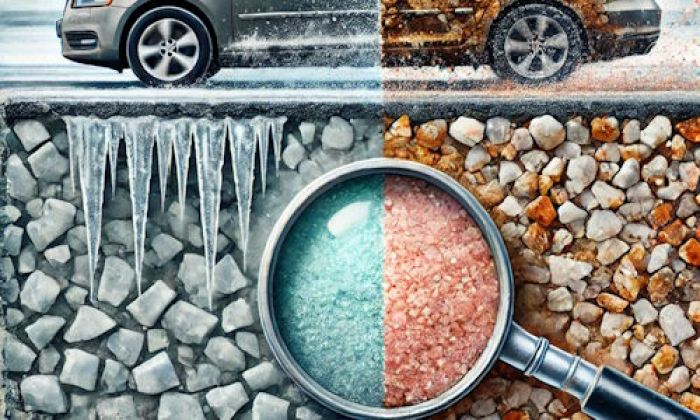Any modern car is controlled by a computer or control unit. This is the electronic device that gets all the information and readings from sensors and operates different solenoids and other parts to make sure that the engine is working efficiently. Also, the car computer tells you if something is wrong with the car by triggering warning lights and error messages.
ECU problems highlights
- Module's importance:Extremely high
- Prone to failure:Yes
- Reasons for failure:Water, damage, software, low voltage, high voltage
- Ways to reset:Cut power, use scanner tool
- Sphere of control:Engine and emissions
- Symptoms of failing:Engine anomalies, CEL light, no start, random warnings
- Price to repair:$150 - $350
- Price to replace:$800 - $1,700

Short guide into car computers and their functions
What we usually call a car computer is actually the ECU - Electronic Control Module. This is the unit that gathers all the readings of numerous sensors in your vehicle and controls the way your engine works. The ECU doesn't only get the info from the sensors. It also operates this information, processes it, analyzes it, and then sends signals to different modules in your car.
For example. the ECU sends signals to open the fuel injectors and send some fuel to your engine. Also, it controls idling in your car and makes sure that the engine stays on even if something is wrong. It controls ignition, fuel supply, and almost all functions of the engine.
It means that the ECU is a vital part of the car's electronic system and without it, you just can't drive the vehicle. There will be no spark, no correct fuel pressure, no injection at the right time, etc. Also, the malfunctioning ECU will throw numerous codes and random error messages to the dash making it impossible to drive the car.
So, it's quite important to know the symptoms of a malfunctioning car computer and understand what you should do once you notice these symptoms.
What are the symptoms of a failing car computer?
When your ECU fails, it may appear to have a lot of different effects on the way your vehicle works. It also depends on the type of damage your computer had. For example, in case of mechanical damage in a car crash, the ECU may just stop working immediately and the car won't start and won't work at all.
But if the computer was burnt due to high voltage or got some water damage, for example, it can still be working but it will most likely start glitching.
The most common symptoms of this are as follows:
- Stalling and hard start. The ignition timing may be changed, so the engine may just stall in the middle of the road, usually, when idling.
- Random error messages. The damaged ECU may start throwing different messages including random errors that will disappoint you.
- Harsh engine work. The engine may work quite harshly because it now has random timing of ignition or poor injection. It will misfire, shake, vibrate, etc.
- Loss of power. Your engine will deliver much less power just because it is now timed wrongly. This will lead to misfiring cylinders and loss of power in the result.
- Poor fuel economy. Your gas mileage will drop sharply because now the fuel is injected randomly and doesn't bring the maximum power. So, the engine consumes much more fuel.
- Some functions may stop working. A lot of important functions depend on the ECU and they may just stop working. For example, the start-stop system, adaptive cruise control, parking assist, etc. - they all may not be working because they don't get correct readings of different sensors.
These are just the most common symptoms of ECU failure. But you should keep in mind that the way and reason why your car computer fails may change these symptoms dramatically. Sometimes, your car just won't start - the engine will be cranking but there will be no start in the end.
Also, you may expect numerous glitches in the work of the ECU. For example, it may malfunction heavily and the engine may work harshly as hell but once you turn the ignition off and then on again, everything will come back to normal.
Why can your car computer die?
The most common reasons for the ECU death or glitches are as follows:
1. Water damage
In many vehicles, ECUs are placed in some not-perfect places. For example, right above the fender liner. While the liner is new and doesn't let the water leak, it's OK. But when the liner is quite old and shabby, water may leak inside and eventually affect the work of the computer.
Electronic modules are afraid of water damage and the ECU will certainly not work well if it's damaged by water. Even if it's just one drop of water that got onto the heart of the ECU, the problems are inevitable. The computer will die slowly and glitch heavily in the process.
2. Car accident
ECUs are often placed somewhere under the hood and when the car gets into an accident, they may be damaged. Once they are damaged, they may still work, but some of their functions will not work well. It means that the ECU will glitch and send wrong signals to some of the important modules and units in your vehicle.
3. Old ECU
With some age on them, car computers may just die. Like any computer, the ECU has its own lifespan. For example, most of them can live about 20 years if the conditions don't kill them earlier than that. But you can certainly expect problems from older ECUs.
Sometimes, these problems are just unbearable and don't let you drive the car. Old ECUs start glitching and then gradually die without letting you affect the process.
4. High voltage damage
Quite often, cat computers may die because they are fried with high-voltage electrical current. This may happen when the alternator or the voltage regulator is faulty. They may send the wrong voltage into the electrical system and some units in your car may be fried. The ECU will be one of the first victims in such a situation.
While the high voltage should be blocked by different fuses, it is not the most perfect way to protect the electrical equipment in your vehicle. So, sometimes, the ECU may be fried and die or start glitching.
5. Wrong mounting
This is quite a weird reason for the ECU death, but anyway, it's worth considering. Usually, the ECU is mounted firmly using two or three bolts or nuts. It allows the computer to firmly hold onto the body part it's mounted on. If it doesn't hold and shakes, it may damage itself just because it hits itself over a metal part constantly.
Once your vehicle goes through some bad roads or goes off-roading, the ECU shakes like crazy and hits itself over some metal part of the car's body. It means that sooner or later the car computer will obviously die.
What should you do if you notice cat computer problems?
Now, that you know the symptoms and the reasons for the car computer problems, you may also want to learn what to do when this happens to your vehicle. Unfortunately, it's hard to prevent the problem or repair the car once the ECU dies. Just replacing it with the used ECU is not a really good option because of compatibility issues.
So, here's what you should do once you notice ECU problems:
- Check the voltage in the system, and pay attention to the alternator.
- Look at the ECU and check if it has some water on it and if its mounting is not correct.
- Check the ECU with the scanner - read the codes and check if it shows the needed information.
- Go to professionals and ask for some help with diagnosing the problem.
- Get professional advice on what you can do to solve the problem.
If you need to replace the cat computer in your car, you will most likely need to buy a new OEM computer. Some vehicles are OK with ECUs from scrapyards, but some will just not work with such parts and will require very expensive adjustments and settings.
Final thoughts
Failed cart computer is not the most pleasant thing you will ever get from your car. This issue can lead to serious problems with the electronic control of the engine. The ECU affects ignition timing, injection preciseness, and quality of combustion, making cylinders misfire and making the engine work harshly.
If you experience these symptoms or any other problems described in this article, seek some professional help. You better diagnose the vehicle professionally so that you knew what you should do.
About the authors
The CarAraC research team is composed of seasoned auto mechanics and automotive industry professionals, including individuals with advanced degrees and certifications in their field. Our team members boast prestigious credentials, reflecting their extensive knowledge and skills. These qualifications include: IMI: Institute of the Motor Industry, ASE-Certified Master Automobile Technicians; Coventry University, Graduate of MA in Automotive Journalism; Politecnico di Torino, Italy, MS Automotive Engineering; Ss. Cyril and Methodius University in Skopje, Mechanical University in Skopje; TOC Automotive College; DHA Suffa University, Department of Mechanical Engineering






Add comment